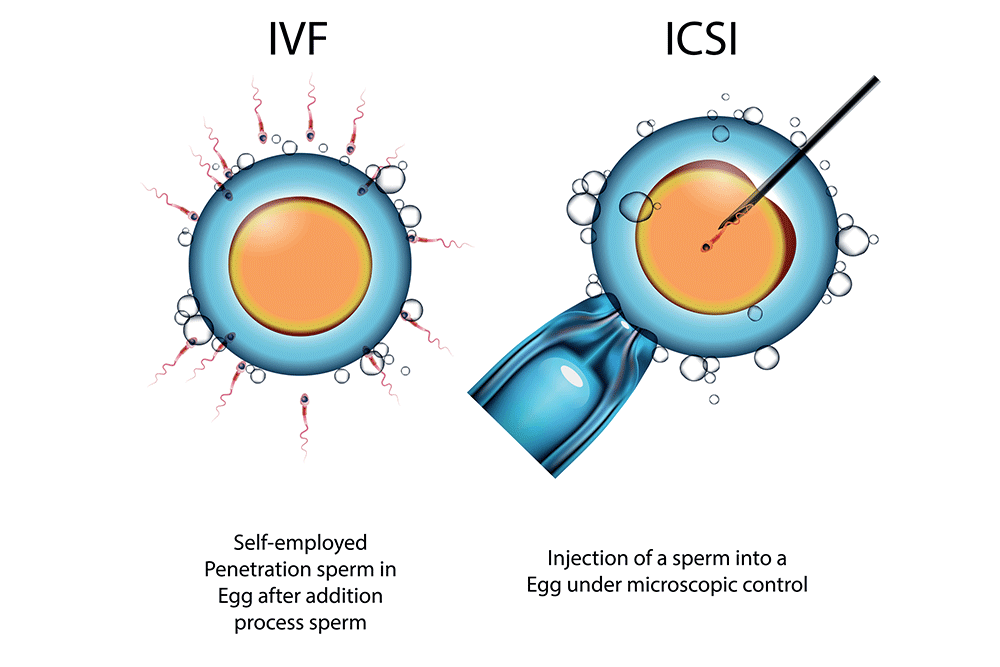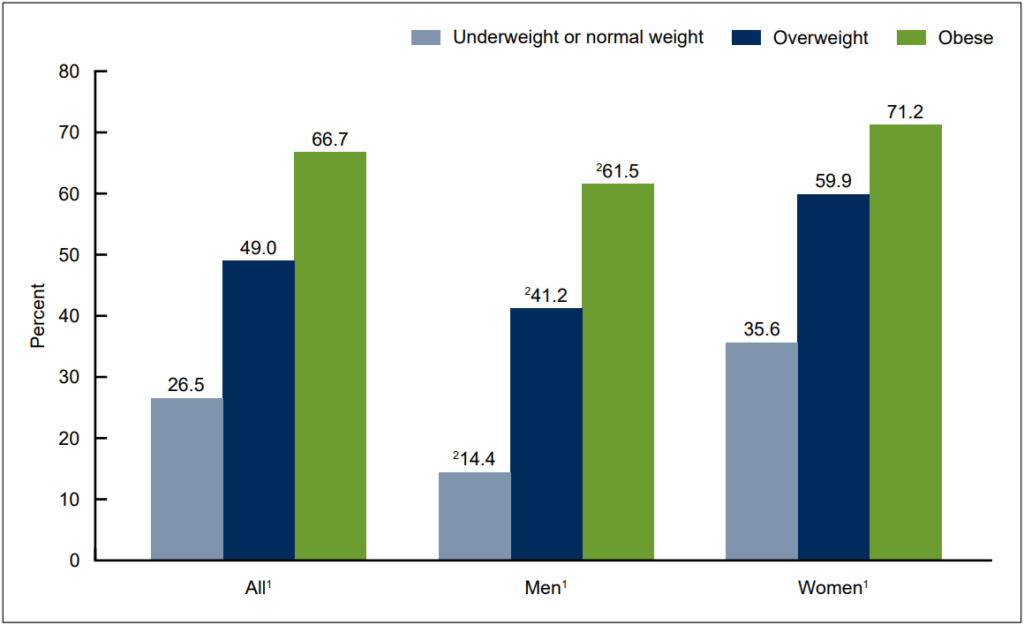- ABOUT
- TREATMENTS & SERVICES
Male Fertility
Genetics & Family Balancing
- SUCCESS STORIES
- CONTACT
- BLOG
In Vitro Fertilization (IVF) and Intracytoplasmic Sperm Injection (ICSI) are two revolutionary procedures in the field of infertility treatments, providing hope to couples who are trying to conceive naturally. In these processes, eggs and sperm are fertilized outside the body.
The resulting embryos are nurtured in an incubator for 3-5 days and then implanted in the mother’s womb. In vitro fertilization (IVF) is a popular assisted reproductive technology used to treat female infertility and unexplained infertility. On the other hand, intracytoplasmic sperm injection (ICSI) is commonly used when male factor infertility is the cause. ICSI involves the injection of a single sperm directly into the egg to increase the chances of fertilization.


IVF, or In Vitro Fertilization, is a type of Assisted Reproductive Technology that involves the fertilization of the sperm collected from the male partner and eggs extracted from the female partner outside the body.
There are several steps in the process of IVF:
Production of eggs: The female partner undergoes hormonal therapy to produce multiple eggs.
Extraction of eggs from ovaries: After the eggs reach the level of maturity, a minor surgical procedure is performed to collect the eggs from the ovaries
Sperm Collection: After the collection of eggs from the female, a sperm sample is collected from the male partner.
Fertilization: Eggs are placed in a laboratory dish, and sperms are sprayed on them for fertilization.
Embryo culture: The fertilized egg develops into an embryo and is then incubated for a few days.
Embryo transfer: The next step is the transfer of the healthy embryo into the mother’s uterus, which will result in a successful pregnancy.
IVF is a revolutionary solution for couples who are unable to conceive naturally due to a variety of reasons, such as fallopian tube issues, male infertility, endometriosis, or unexplained fertility problems. There has been a significant development in assisted reproductive technology (ART) in recent years, which has resulted in the increased popularity of Intracytoplasmic Sperm Injection (ICSI) as compared to the traditional In Vitro Fertilization (IVF). Although IVF is still a valuable technique, ICSI has emerged as a more advanced and effective method.
Intracytoplasmic Sperm Injection (ICSI) is a treatment specifically designed for male factor infertility. Unlike IVF, in which the egg and sperm are fertilized naturally, ICSI involves the direct injection of healthy sperm into the cytoplasm of healthy sperm.
The ICSI procedure begins with the collection of eggs from the female partner through the standard IVF process. Simultaneously, a sperm sample is obtained from the male partner or a sperm donor. The embryologist then carefully selects a viable sperm and injects it directly into the egg using a microneedle.
ICSI is particularly recommended when male fertility issues are major causes of infertility, such as ;
ICSI increases the chances of successful fertilization and embryo development by allowing direct sperm-egg interaction.
This technique has proven to be a valuable option for couples facing challenges related to male infertility, offering them an enhanced chance of achieving a successful pregnancy when conventional IVF may not be as effective.
ICSI yields impressive fertilization rates ranging from 50% to 80%. Please contact us promptly to schedule ICSI appointments. Your journey toward parenthood awaits.
Nature | In Vitro Fertilization (IVF) | Intra-Cytoplasmic Sperm Injection (ICSI) |
Fertilization Process | Natural fertilization in a lab dish. | Direct injection of a single sperm into the egg. |
Sperm-Egg Interaction | Sperm is allowed to penetrate the egg naturally. | Single sperm is injected into the egg using a microneedle. |
Indications | Used in various infertility cases. | Recommended explicitly for male-factor infertility+ female factor |
Success Rates | Success rates may vary based on multiple factors. | Often used when conventional IVF may have lower success. |

The success rates for IVF and ICSI depend on various factors such as age, infertility cause, and the health of the sperm and eggs. It is important to note that success rates for IVF and ICSI can vary based on multiple factors such as age, infertility cause, and the health of the sperm and eggs.
For women under 35 years of age, the reported success rates for both IVF and ICSI are around 50%. However, for women aged 40 and over, the success rates tend to be lower, around 25%. However, success rates tend to decline with increasing age due to factors such as a decrease in egg quality and quantity. It is best to consult with our fertility specialists to determine the best treatment plan for your individual needs.
The results of your fertility tests and a consultation with one of our fertility specialists can help you decide which fertility treatment is right for you. Our experts will always work with you to make you fully aware of your treatment plan, process, and pricing before you begin your treatment.
You need to consult with one of our fertility specialists and get the results of your fertility tests to determine the best fertility treatment for you.
Our fertility experts will work with you to ensure you understand your treatment plan, process, and pricing before you start any treatment.
The cost of In Vitro Fertilization (IVF) and Intra-Cytoplasmic Sperm Injection (ICSI) in Pakistan typically ranges from Rs 750,000 to 850,000. However, it’s important to note that the actual expenses of fertility treatments can vary depending on several factors, including the history of the patient and the treatment plan. The Australian Concept is committed to providing personalized treatment plans according to the specific needs of each patient. The cost of IVF and ICSI treatments can vary depending on the individual treatment plan recommended by our fertility specialists. We strive to ensure that our patients receive the best possible care at an affordable cost.
ICSI is a highly successful assisted reproductive technology. It addresses various causes of infertility, such as irregular ovulation, male factor issues, tubal and uterine problems, and genetic disorders, providing hope for couples facing challenges in conceiving.
ICSI offers benefits such as addressing male factor infertility, overcoming ovulation disorders, treating tubal and uterine issues, genetic screening, increased control over family planning, and tailored treatment plans. It is effective in increasing pregnancy rates, with reported live birth rates of 20-40% for females under 40
ICSI is highly effective in achieving fertilization, with fertilization rates typically ranging from 70% to 85% of eggs injected using this procedure.
No, sperm donation is generally considered illegal in Pakistan due to cultural and religious considerations.
32-A, Rojhan Street, Block 5, Kehkashan, Clifton, Next to PRANZO Restaurant, Behind BBQ Tonight, Near BILAWAL Chowrangi, Karachi, Sindh, Pakistan 75600
116 Babar Block, Barkat Market, Near Salaar Center, Lahore, 54000.
3rd Floor, Aklas Plaza, G10 Markaz, Behind Babri Masjid, Sawan Road, Islamabad.
The Australian Concept Infertility Medical Center “Australian Concept” was established in 1998 with Australian technical collaboration in Karachi, Pakistan.